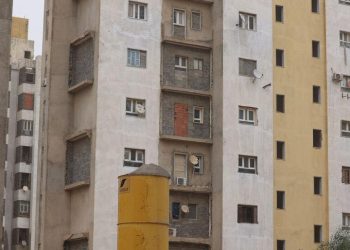By Ahmed Elumami.
Benghazi, 1 August 2013:
A bitter row over security failures in Benghazi has broken out between the city’s security forces . . .[restrict]and the Ministry of Interior, in which the minister has been attacked as “inefficient” and “clinically dead”.
The dispute erupted after a government spokesman insisted that despite the assassinations and bombings targeting members of the security forces in Benghazi, the overall level of security was at a “good level” thanks to the ministry’s own planning.
Interior Ministry spokesman Rami Kaal told the Libya Herald that during his inspection tour of eastern Libya earlier this week, interior minister Mohamed Sheikh had been encouraged by the way in which members of the security forces had increased their vigilance and were ready to deal with any incident.
However, a Libya Herald reporter did not see any security men when he took pictures after the Court House explosion last Monday. Instead the scene of the attack was surrounded by residents of the Sooq El-Hoot neighbourhood. They were trying to organise the traffic and prevent people from approaching the scene of the blast.
Kaal went on to explain that the Interior Ministry had produced a security plan that was supposed to be carried out by the Benghazi Security Directorate. He added that any short-comings in the execution of this plan should be addressed by Sadeq Muftah Ellawati, since this May, Benghazi’s police chief.
Kaal’s comments have drawn an angry response from the Benghazi Joint Security Room, where spokesman Mohamed Hejazi told this newspaper: “In my own opinion, the so-called the interior minister Mohamed Sheikh is clinically dead, because he does not run the ministry efficiently or maybe there is a factor that controls him.”
Hejazi added that Joint Security Room personnel were disappointed that they had not been given either the numbers or the equipment with which to secure Benghazi. No support he said, had been received from the government or the Congress. What the local security teams have been achieving, he said, was due entirely to their own efforts and determination. However they simply could not respond to the level of violent incidents that were taking place within a 24 hour period.
Libya Herald reporters have however seen that even after last Saturday’s mass-breakout of 1,200 inmates from Kuafiya prison, the east and western gates of the city were for some time unguarded by any security personnel.
For his part the head of the National Security Committee of the Congress, Abu Baker Rujbani told the Libya Herald that his members were still receiving reports from the Interior Ministry, asserting that the security situation in Benghazi has been controlled very well and there were immediate responses to incidents.
“Personally, “ said Rujbani, “I believe that Mohamed Sheikh is not qualified enough to be Interior Minister and/or he is controlled by unknown groups to destabilise security in Libya.” [/restrict]








